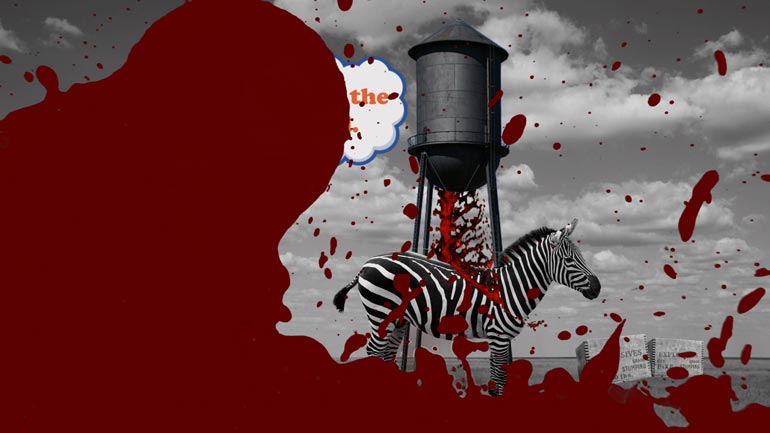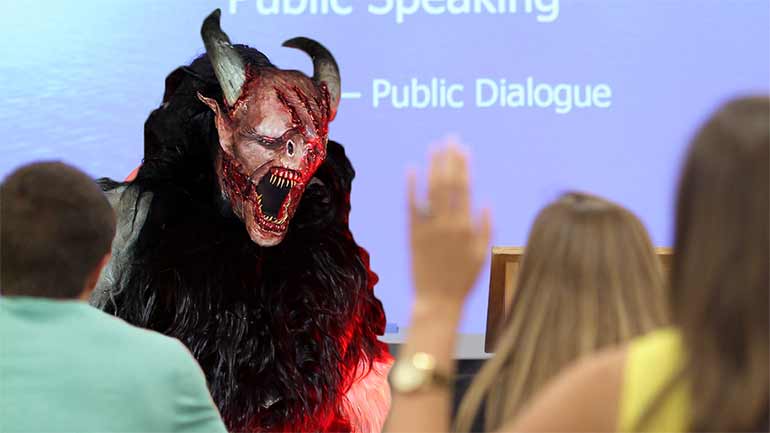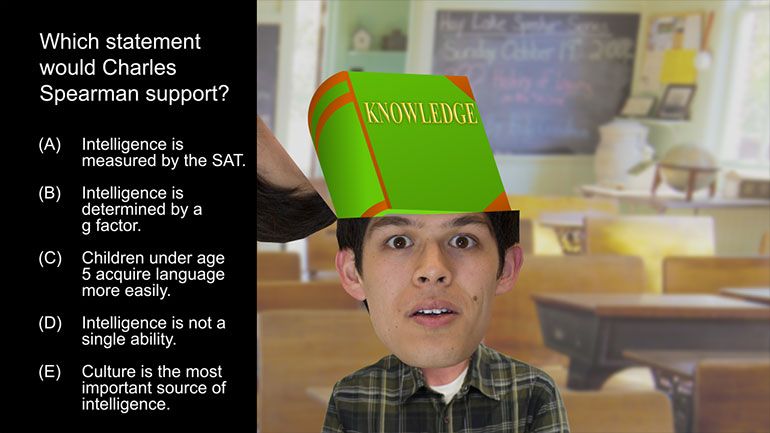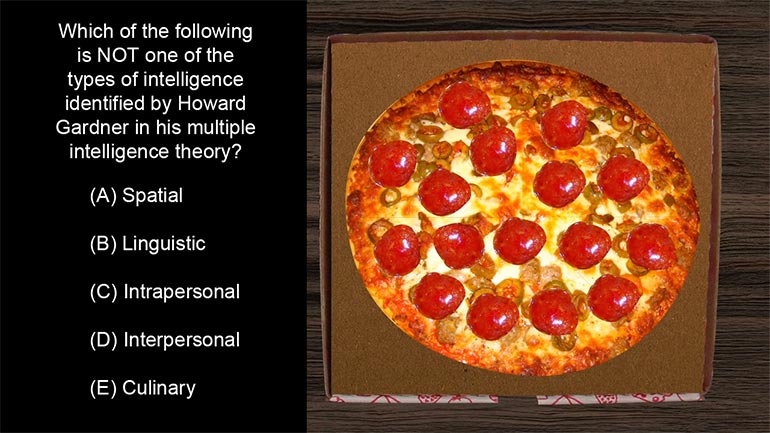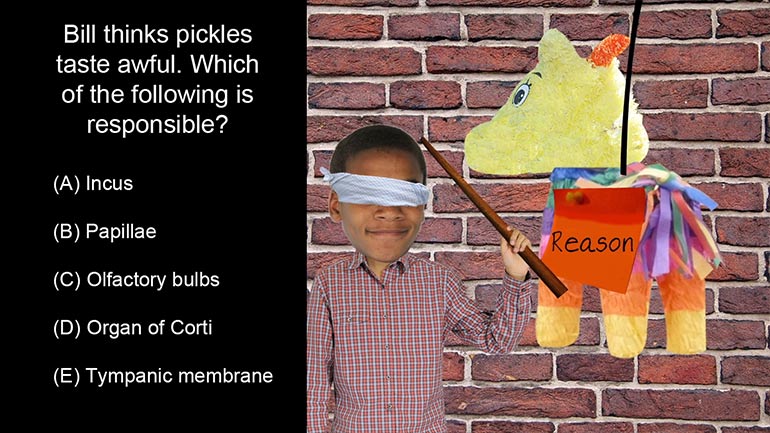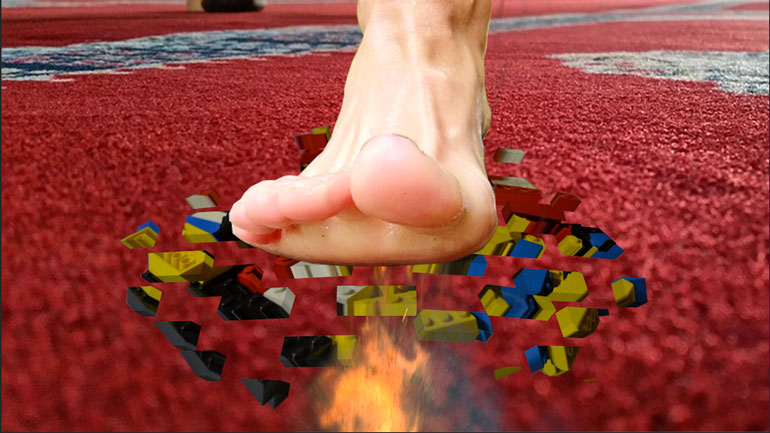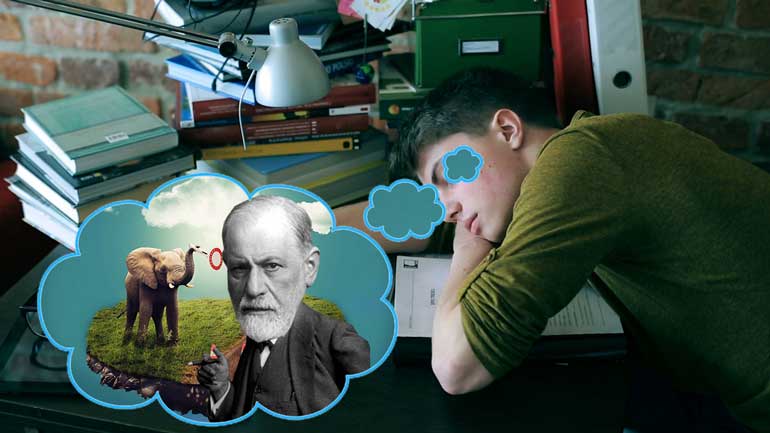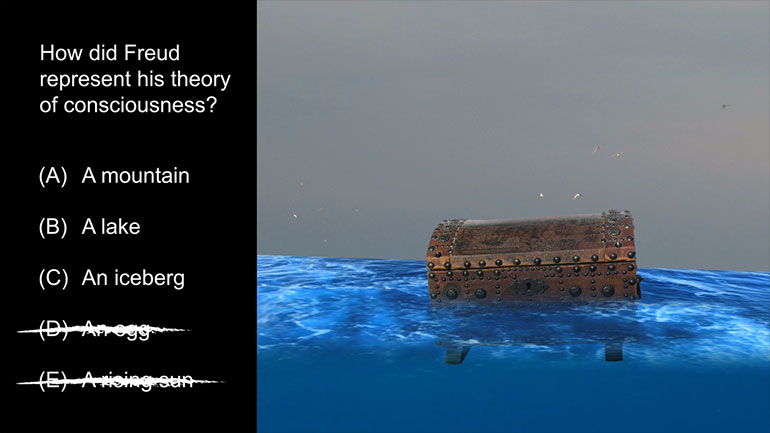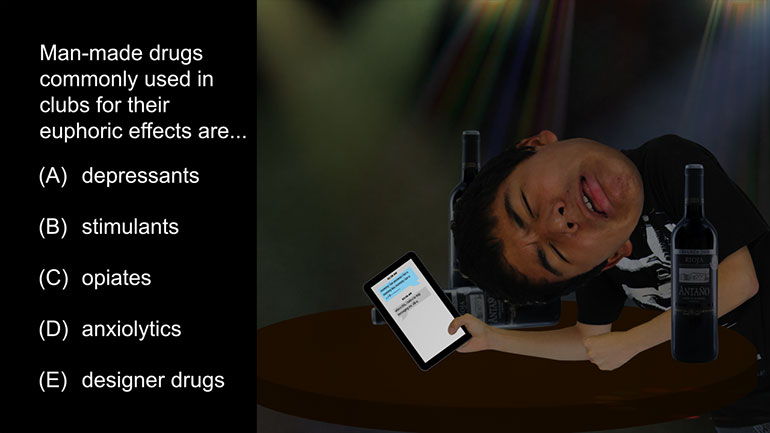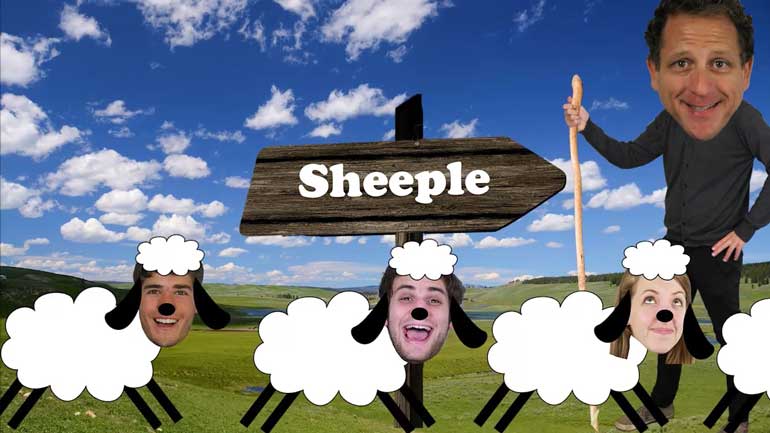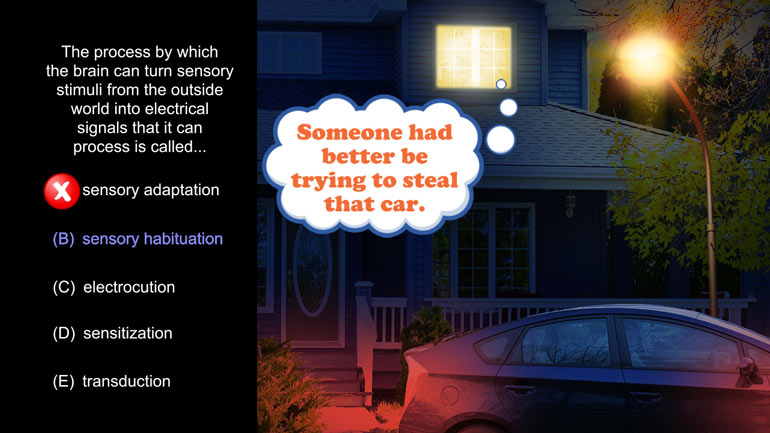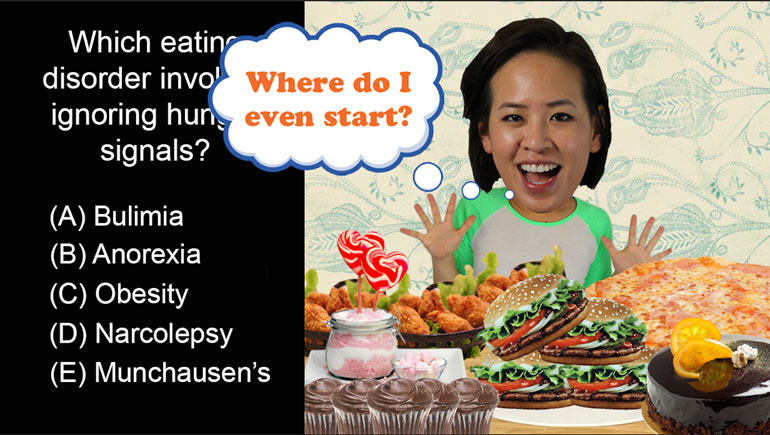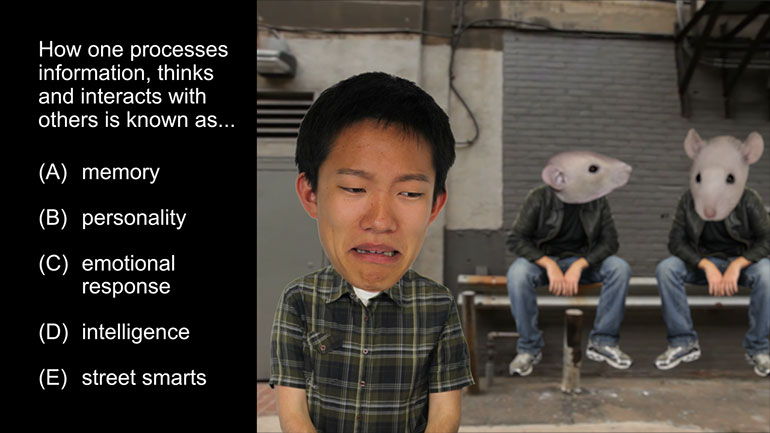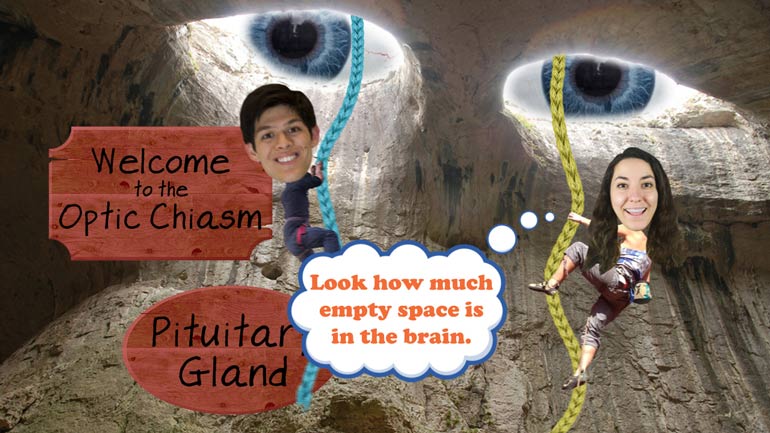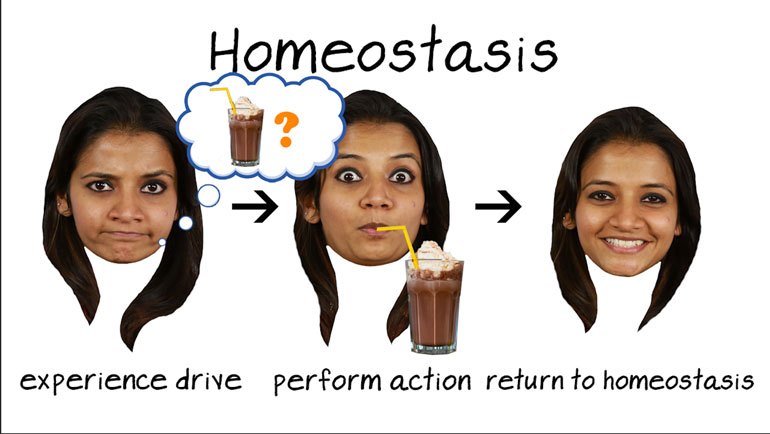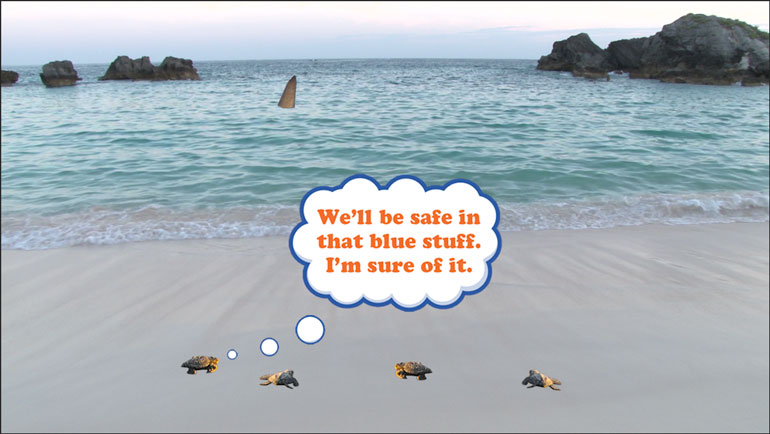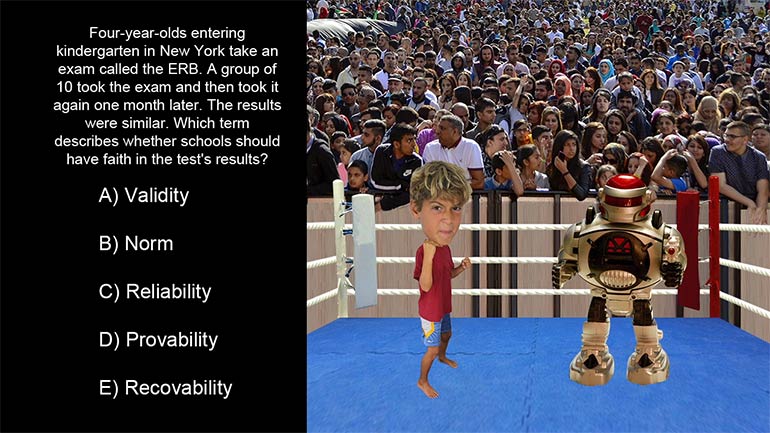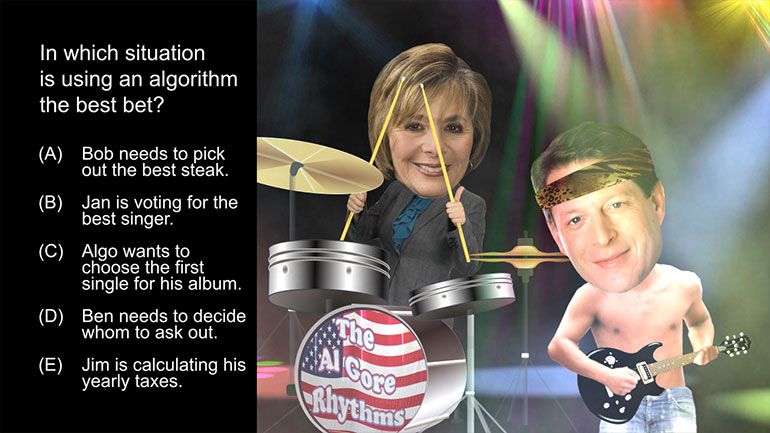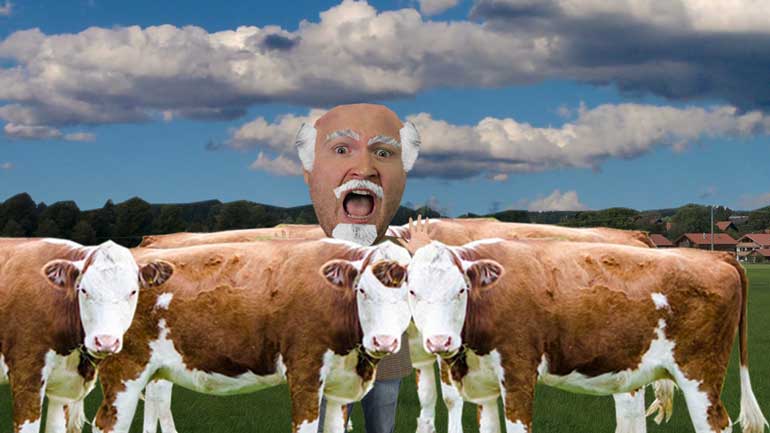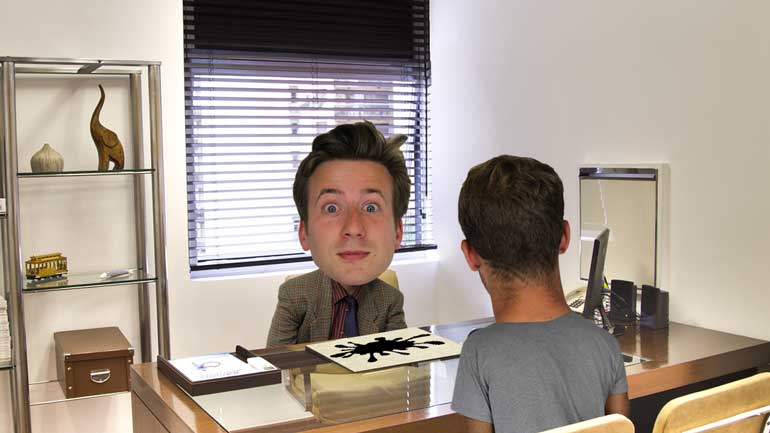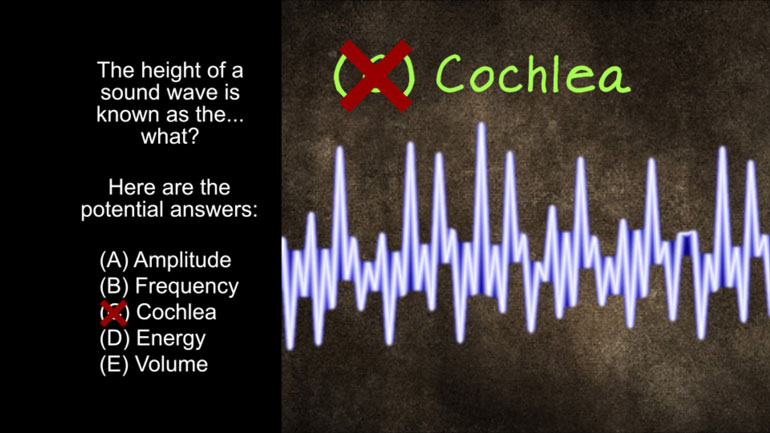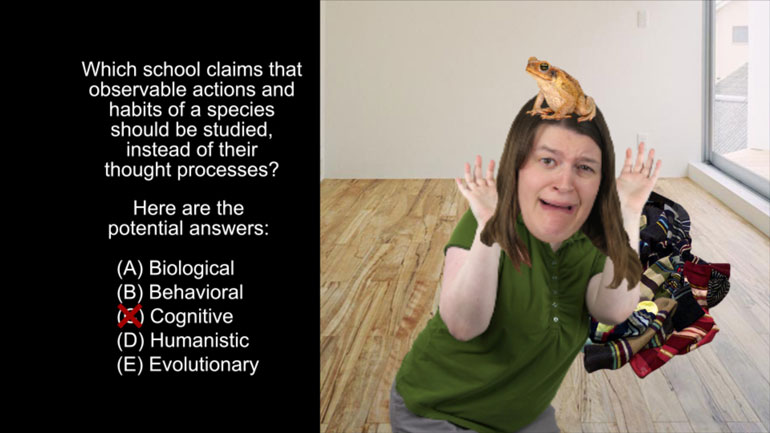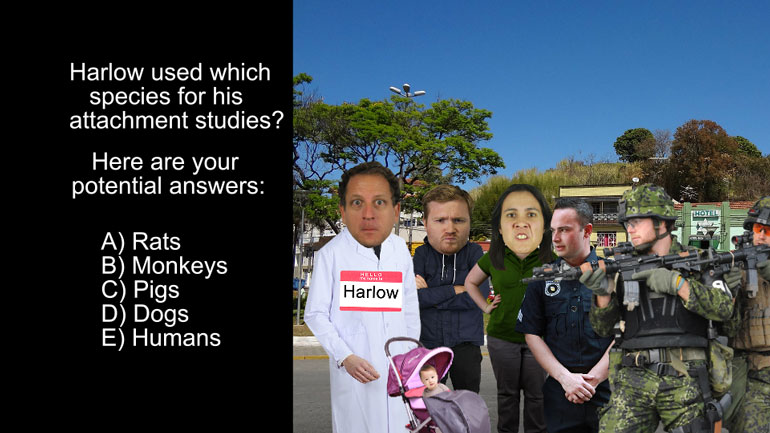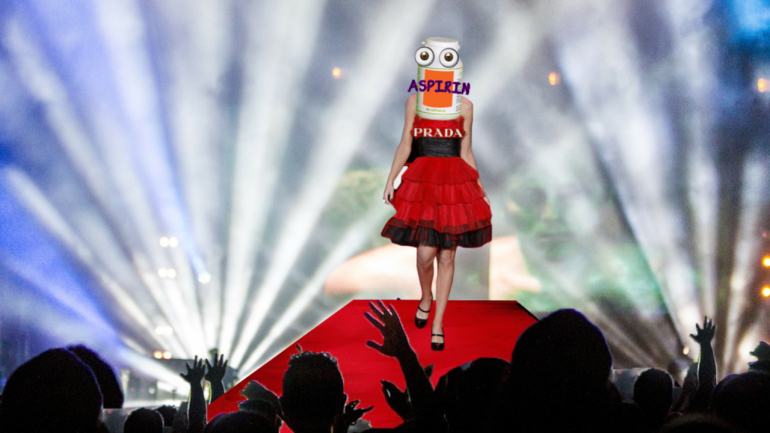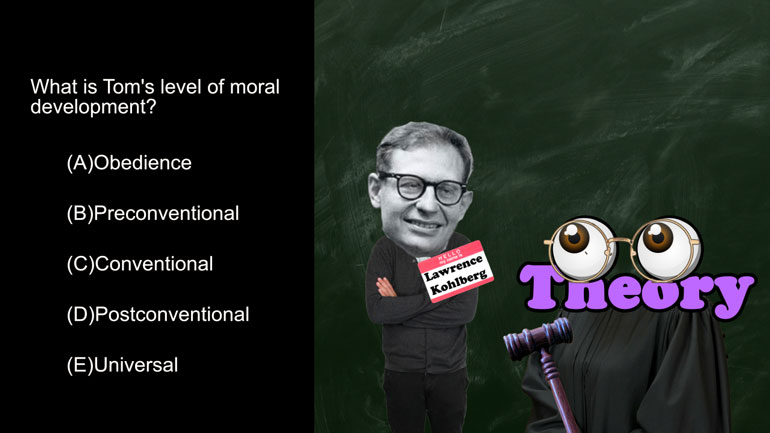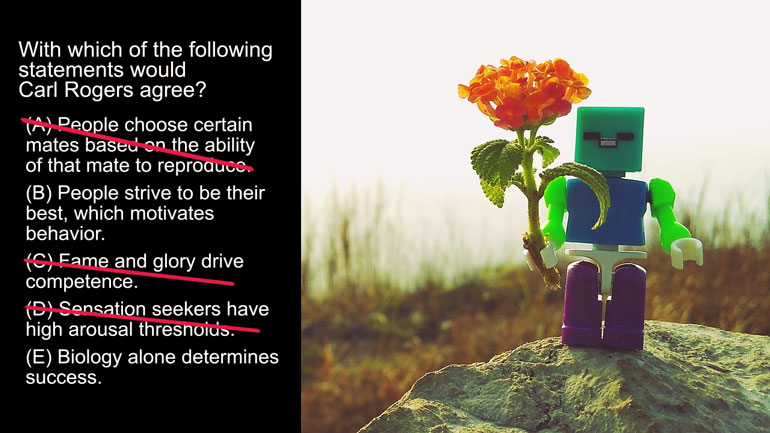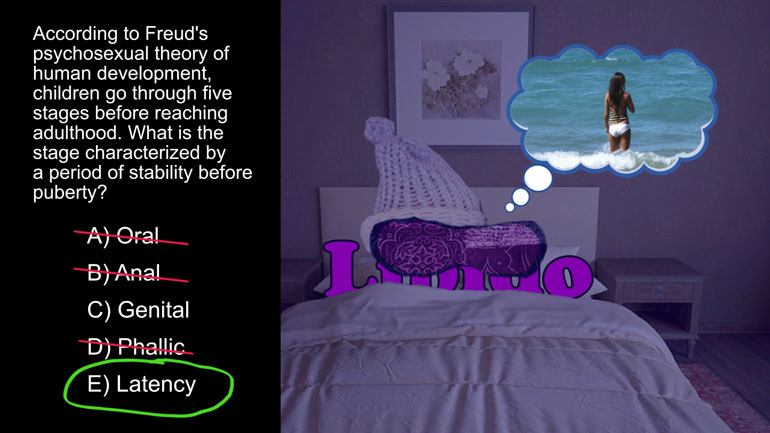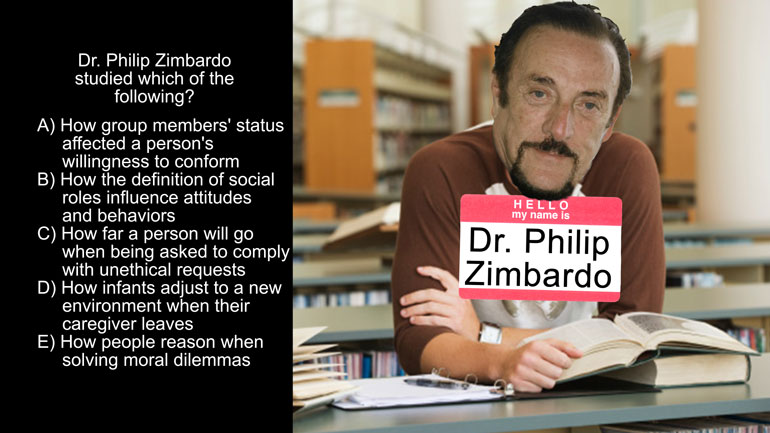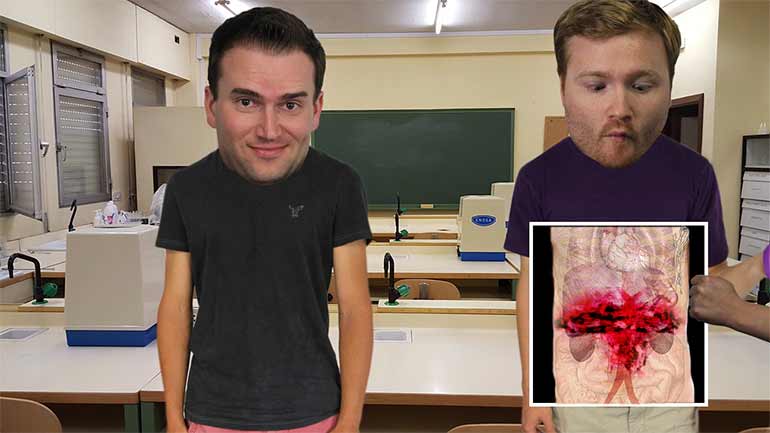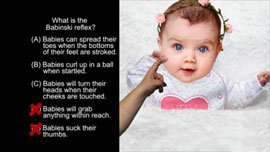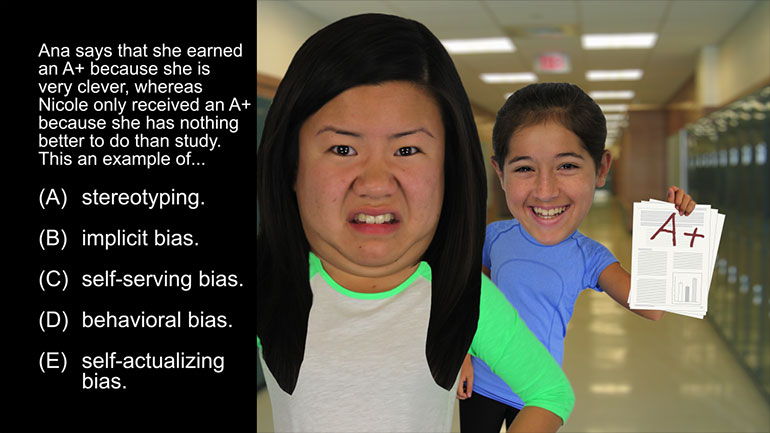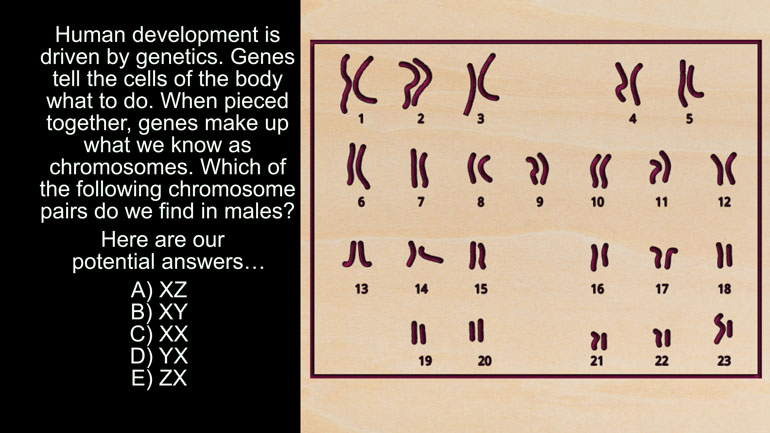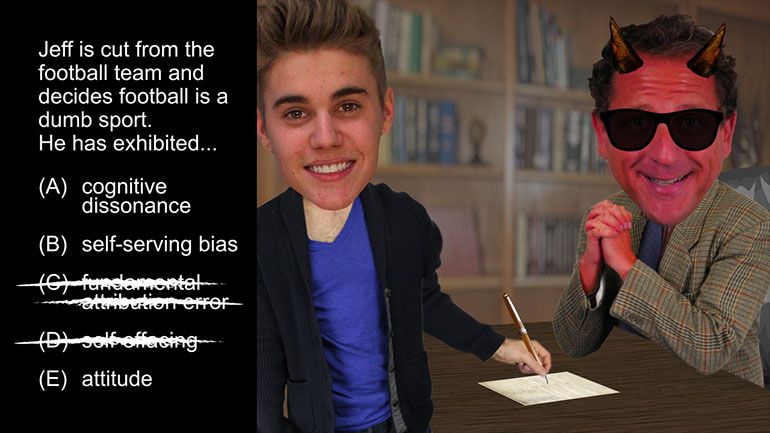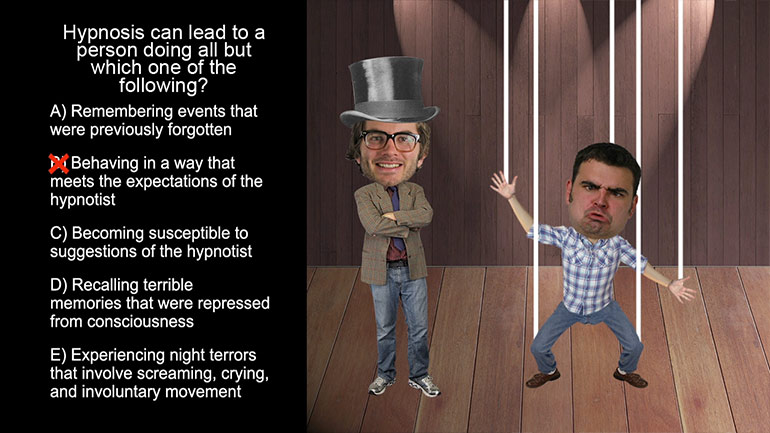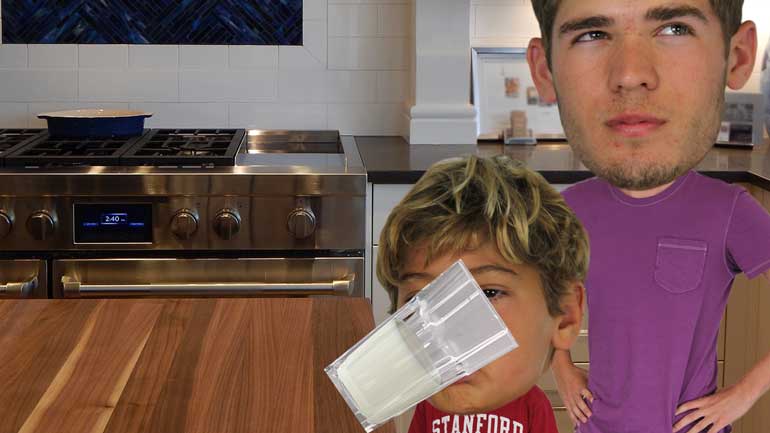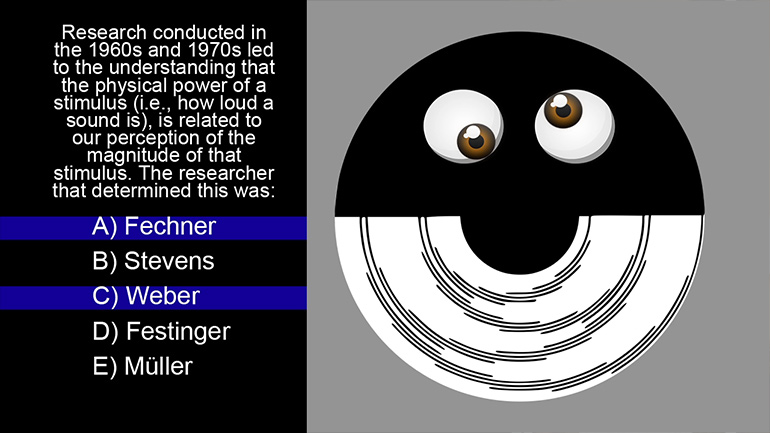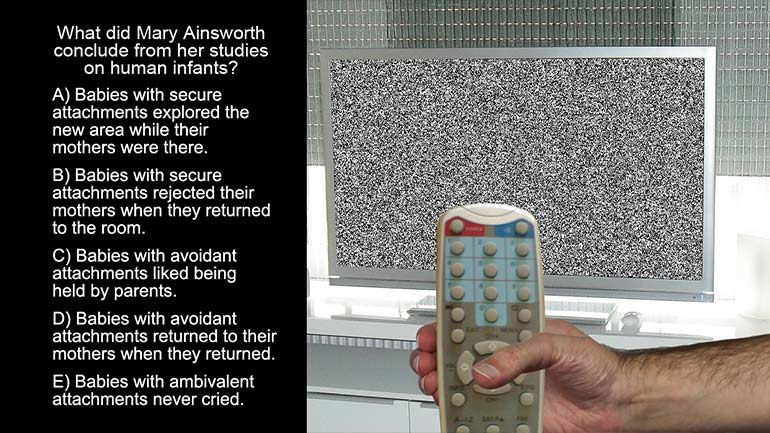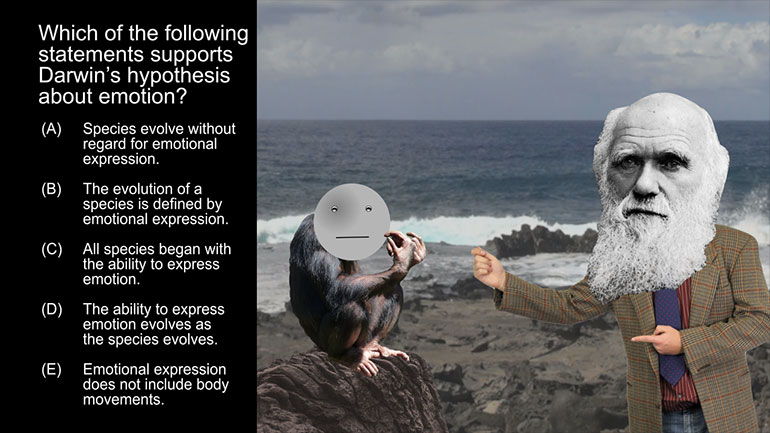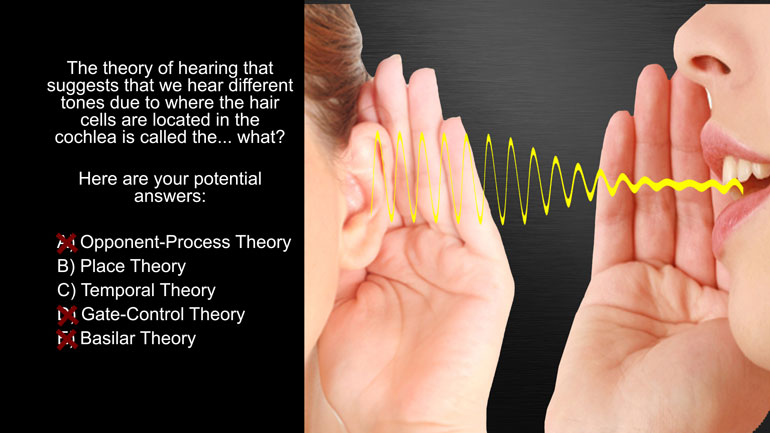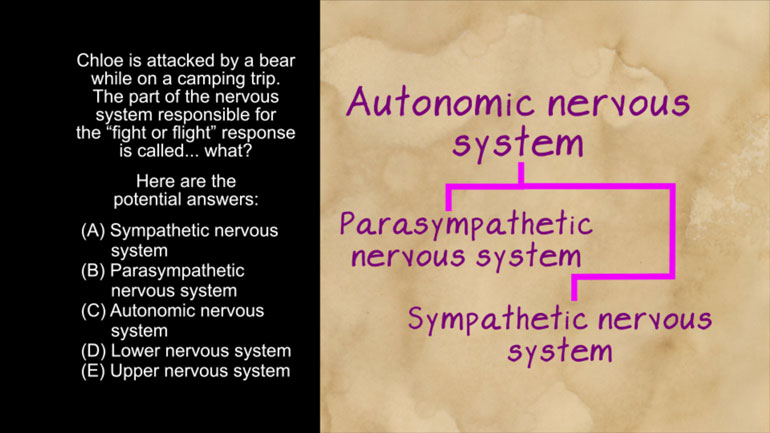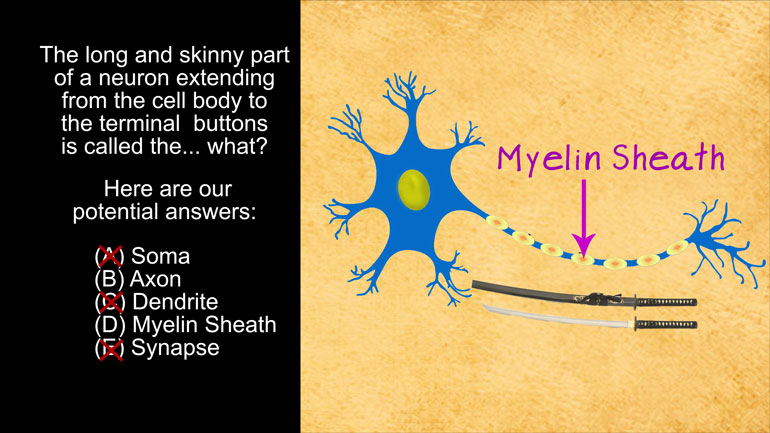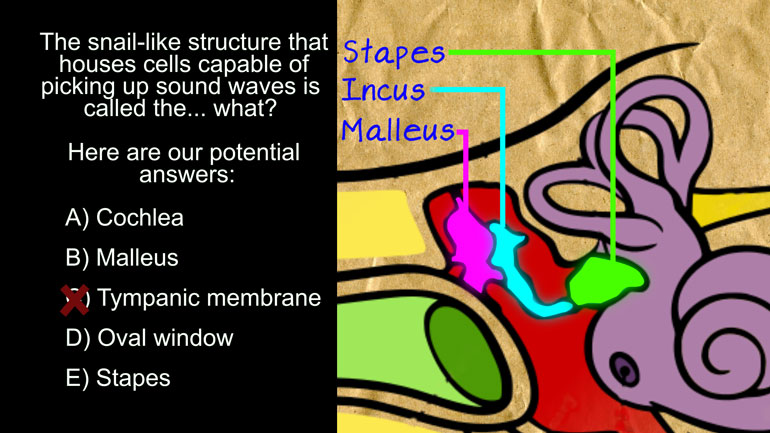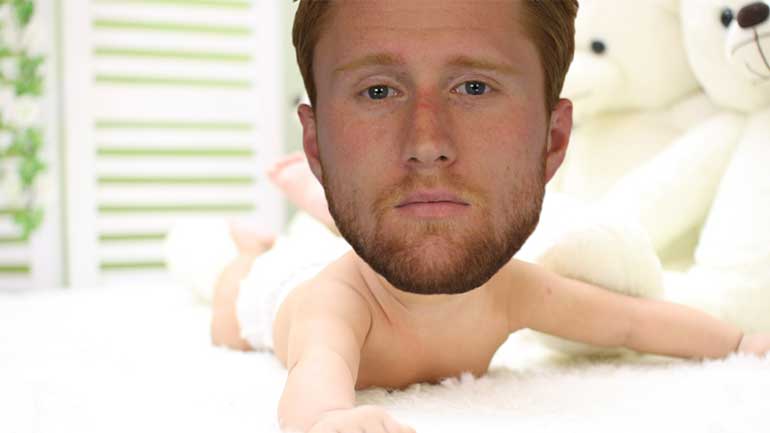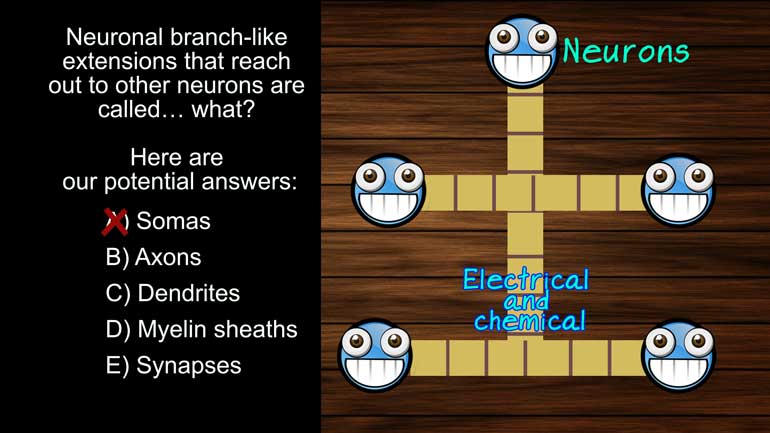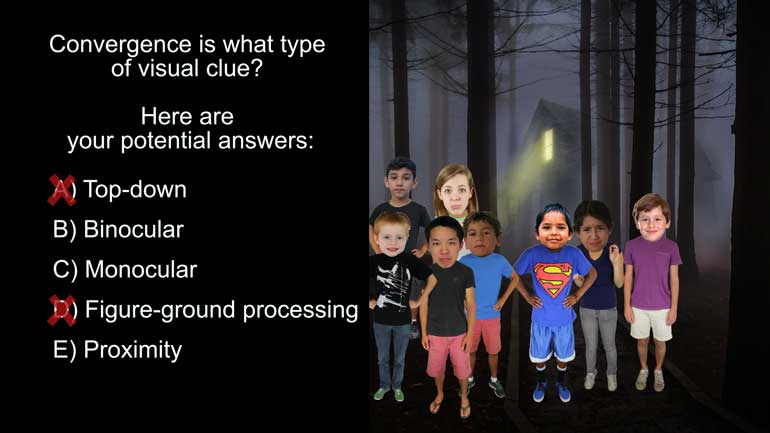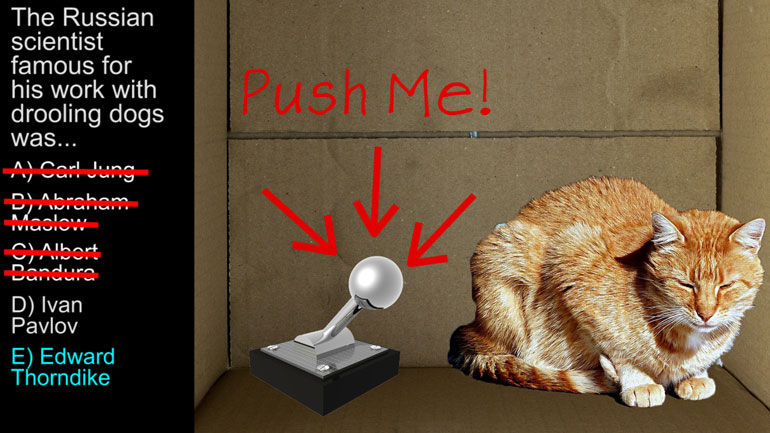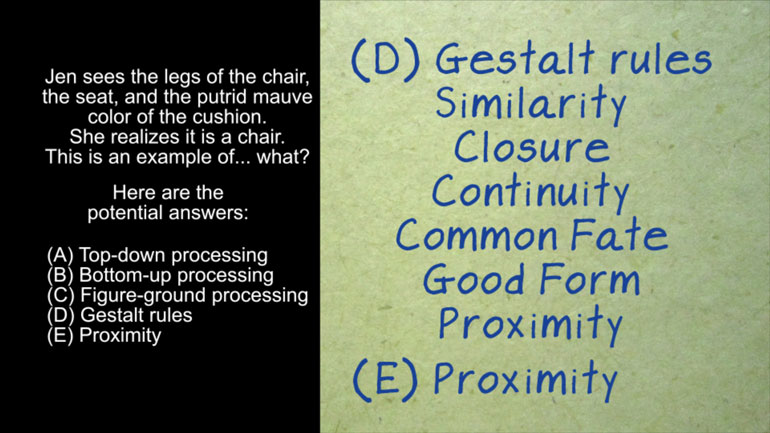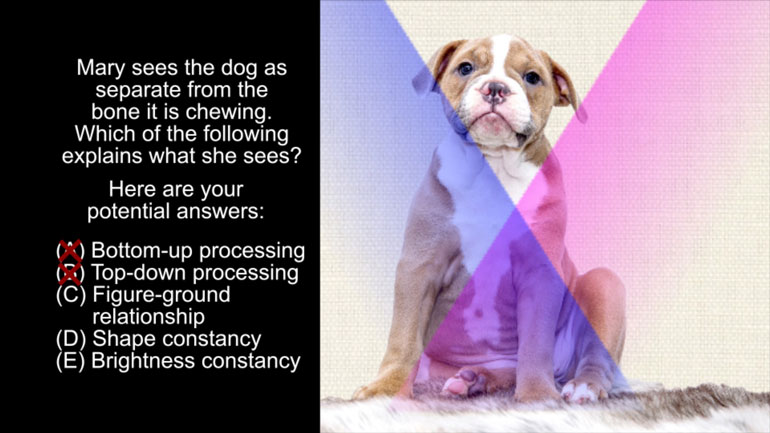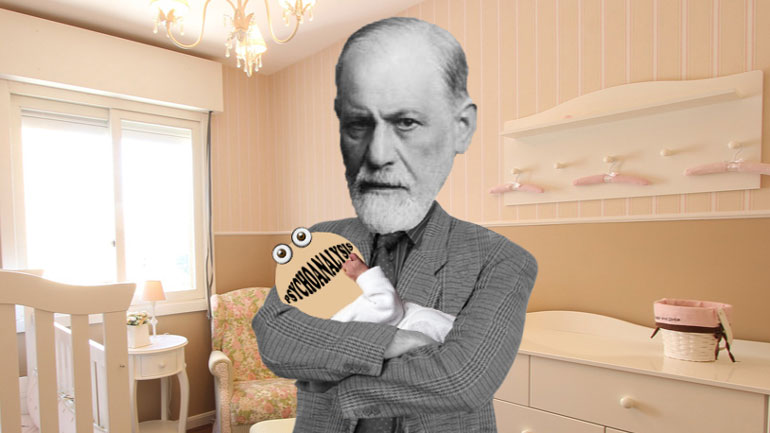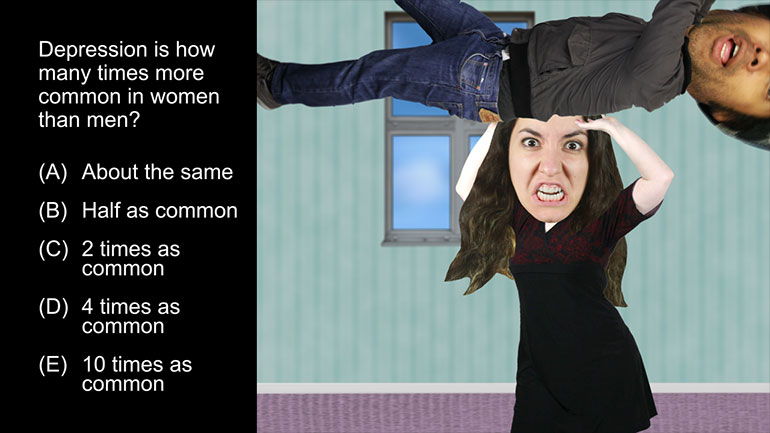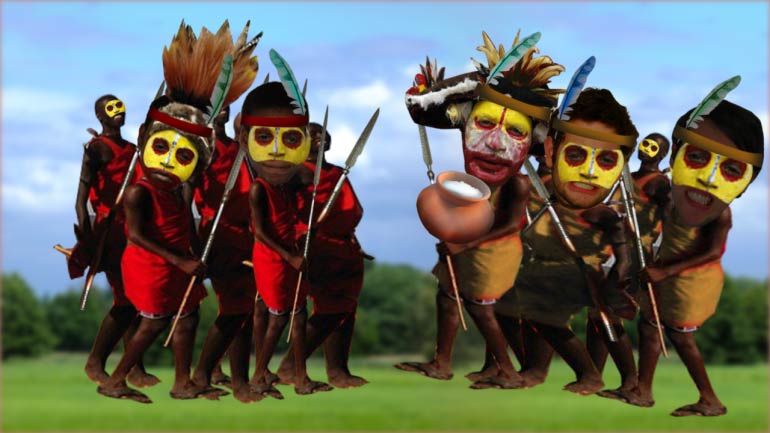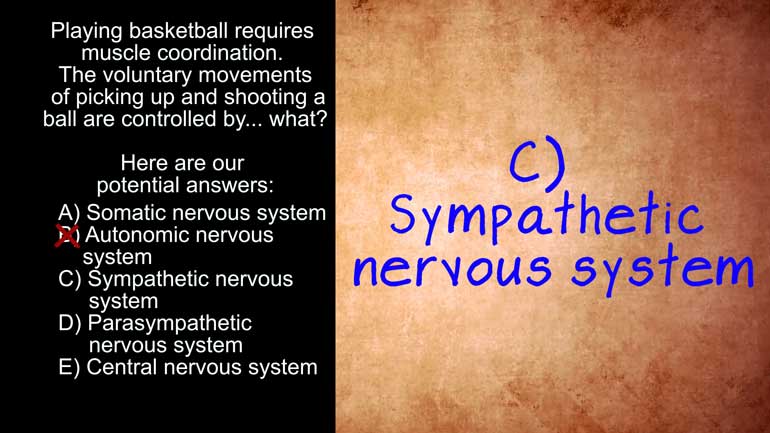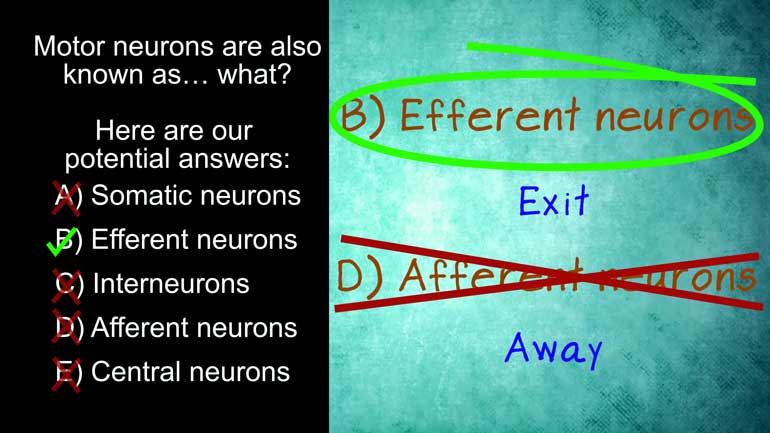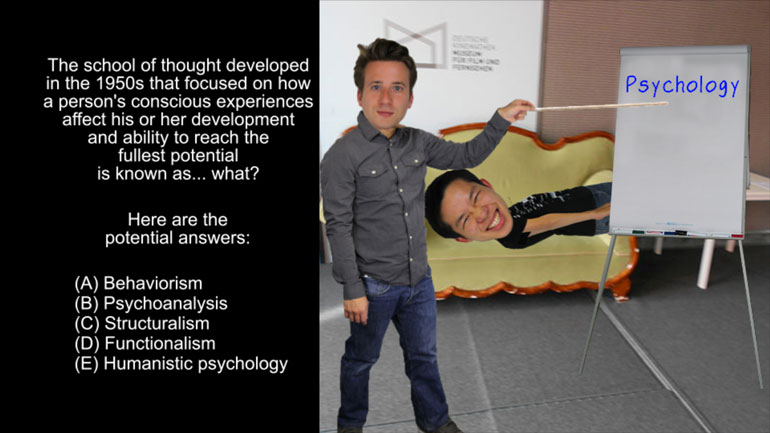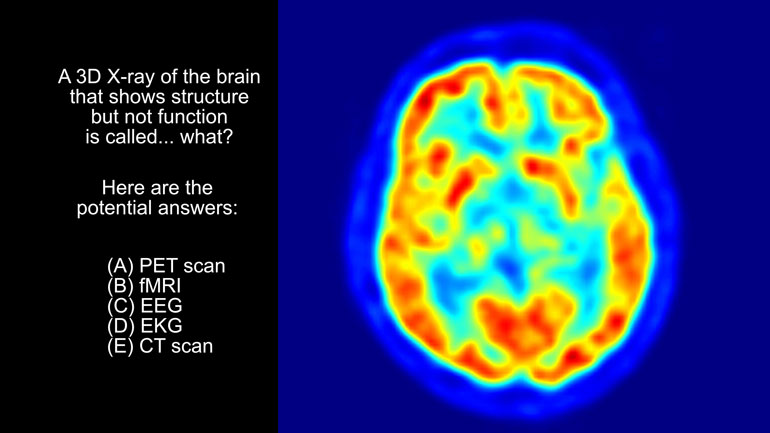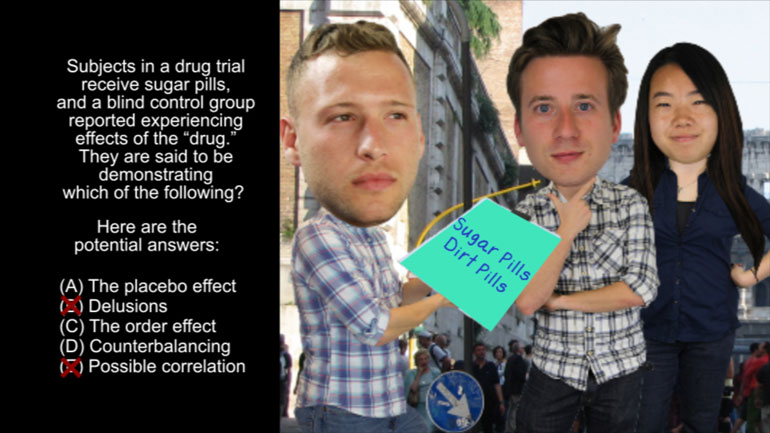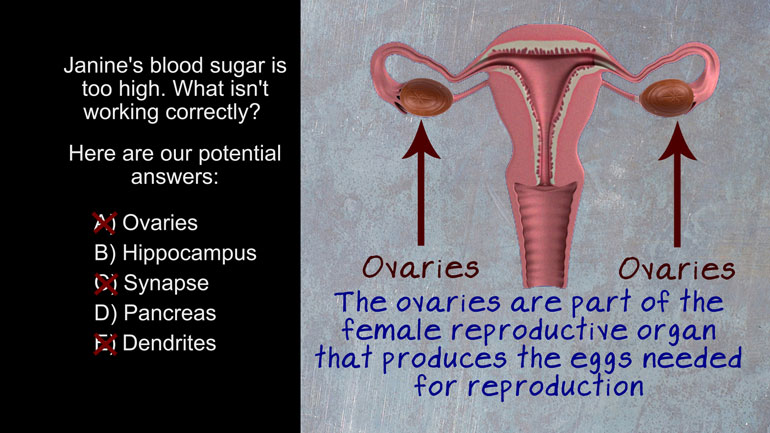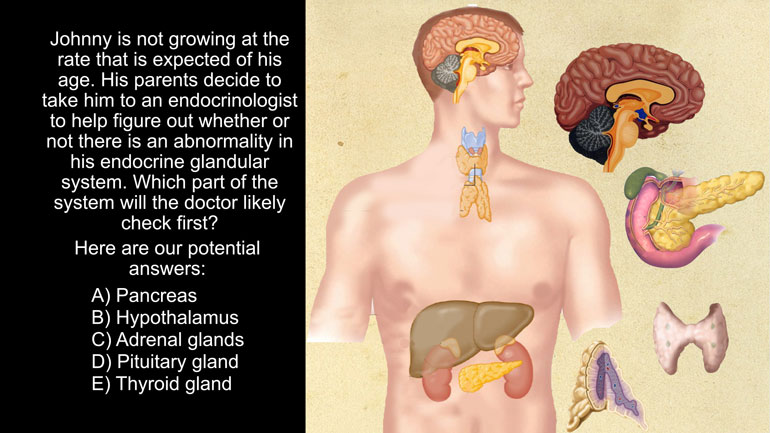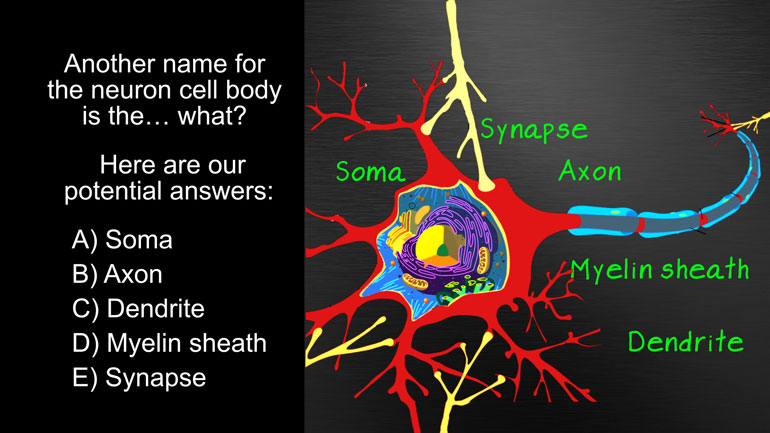ShmoopTube
Where Monty Python meets your 10th grade teacher.
Search Thousands of Shmoop Videos
AP Psychology Videos 162 videos
AP Psychology 1.1 Social Psychology. Which of the following best describes social psychology?
AP Psychology 1.1 States of Consciousness. Who conducted research on REM sleep deprivations?
AP Psychology 1.2 Cognition. Which of the following strategies would work best for generating new ideas?
AP Psychology 3.5 History and Approaches 11 Views
Share It!
Description:
AP Psychology 3.5 History and Approaches. Dr. Phillip Zimbardo studied which of the following?
Transcript
- 00:04
And here's your shmoop du jour brought to you by dr. Phil Zimbardo
- 00:07
the founder of the heroic imagination project which advocate for everyday [Dr Zimbardo sitting at a table]
- 00:12
heroism and bringing back phone booth okay let's see our question dr. Philip
- 00:18
Zimbardo studied which of the following art and our potential answers are all
- 00:24
right so why do all these answers sound so familiar well it could be because
Full Transcript
- 00:28
each answer describes a famous experiment in psychology or maybe we're
- 00:32
repressing something anyway we know that only one of these answers was studied by [Dr Frankenstein turns on machine and monster electrocutes]
- 00:37
our man Zimbardo so let's take a look at our choices we know it isn't answer a [Zimbardo reading a book]
- 00:42
because a describes the conformity experiments of Solomon Asch in Ash's
- 00:48
experiment a real participant was put in a room with several actors pretending to [Participants sit by a table]
- 00:52
be participant the whole group was then shown to card one with a single line on
- 00:57
it and another with three lines on it on the second card one line was the same
- 01:03
length as that on the previous card while the others were clearly not the
- 01:08
group was then asked to identify the line that was the same length [Man hands out cards to participants]
- 01:11
however ash sometimes had his actors unanimously give an incorrect answer in
- 01:16
order to see if the true participant would conform with the group and provide
- 01:21
the clearly wrong answer as well his findings yeah about a third of the
- 01:25
participants knowingly gave the wrong answer in order to fit in with the rest
- 01:29
of the group it's an interesting study but Zimbardo had nothing to do with it
- 01:33
Zimbardo had nothing to do with C either C is all about the Milgram experiment on
- 01:37
obedience the goal of the study was to see how obedient people would be to [Man points to red button]
- 01:42
authority figures when given instructions that conflicted with their
- 01:46
own personal moral the experiment had participants deliver an increasingly [Woman electrocuted as man presses button]
- 01:51
painful electric shock to other participants who were actually just
- 01:55
actors for answering incorrect answers well despite their apprehension 65% of
- 02:02
participants obeyed orders and continued the electrocution to the maximum voltage
- 02:07
showing that obedience is a deeply ingrained quality answer D describes
- 02:12
Mary Ames a strange situation developed in the [Mary Ainsworth appears]
- 02:16
1970s to observe attachment relationships between infants and their
- 02:20
mothers she determined that babies had three attachment style secure insecure [Baby jumps up at mother]
- 02:25
and disorganized later findings suggested that no matter what attachment
- 02:30
style an individual had in infancy by the age of 14 all attachment style [Mom and son in room with psychologist]
- 02:34
shifted to mom please stop you're embarrassing me and answer II described
- 02:39
the Kohlberg experiment which used a series of stories focused on moral
- 02:43
dilemmas in order to produce what Kohlberg humbly named Kohlberg stages of
- 02:47
moral development all right well his most famous story was [Robber in street and two officers appear]
- 02:50
called the Heinz dilemma it actually involved a man named Hank
- 02:54
stealing an expensive cancer drug that he couldn't afford to purchase in order
- 02:58
to save his wife from dying of cancer the Kohlberg concluded that his children [Woman laid in hospital bed]
- 03:03
got older they became better at grasping the moral complexities of such a dilemma
- 03:08
well he also gave kids everywhere the intellectual tools to argue that maybe [Boy enters kitchen and mom is cooking]
- 03:12
stealing a cookie from the cookie jars and more complex moral dilemma than
- 03:15
their parents are making it out to be and yeah that's a separate issue
- 03:18
that leaves us would B....B describes the famous Stanford Prison Experiment which
- 03:22
was conducted by you guessed at one mr. Philip Zimbardo conducted in 1971
- 03:27
Zimbardo created a mock prison and assigned participants roles is either
- 03:32
prisoner or guard the participants took their roles so seriously that the [Psychologist waves to officer]
- 03:37
experiment had to be stopped after only six days because the guards began
- 03:41
abusing their power and mistreating the prisoners causing severe emotional
- 03:45
distress it's kind of like when you play cops and robbers on the playground [People playing cops and robbers on field]
- 03:49
except in a prison and scary and far more ethically ambiguous no it is
- 03:54
however the answer we were looking for B if only someone had had a phone booth to [Zimbardo stood by phone booth]
- 03:58
change in well maybe they could have stopped the experiments a little bit
- 04:02
sooner
Related Videos
AP Psychology 1.1 Sensation and Perception. The process by which the brain can turn sensory stimuli from the outside world into electrical signals...
AP Psychology 1.1 States of Consciousness. Who conducted research on REM sleep deprivations?
AP Psychology 2.2 Social Psychology. Which of the following was an independent variable manipulated in Asch's research?
AP Psychology 1.1 Personality. According to Freud, these three parts of personality are constantly in conflict.
AP Psychology 1.1 Social Psychology. Which of the following best describes social psychology?



